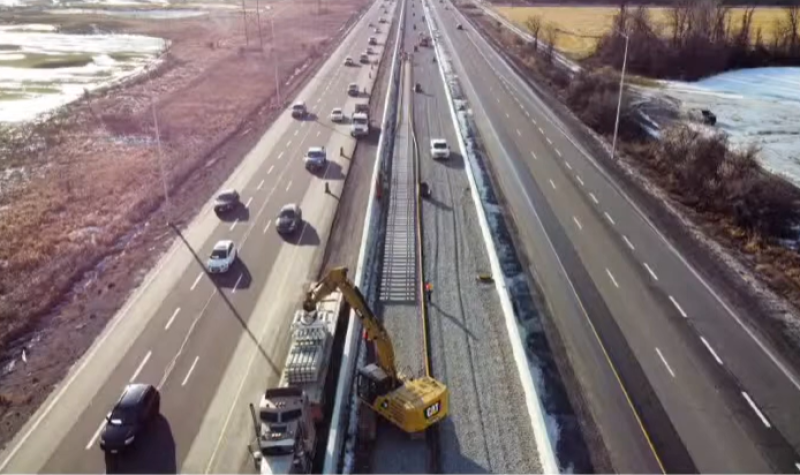Ottawa’s Finance and Economic Development Committee (FEDCO) received a progress update on the second stage of light-rail transit (LRT) construction last week.
Stage 1 of LRT construction added 13 new transit stations along Highway 417. Three significant rail extensions were approved in 2019 and will expand O-Train access to the east, west, and south ends of the city. Rideau Transit Group (RTG), was the company charged with overseeing the construction of the light-rail transit (LRT) and the extensions. Since the first line of the LRT opened to the public in 2019, RTG has come under fire for multiple derailments, technical issues, and passenger injuries, and now questions are being raised about their ability to deliver on the extensions. Last week, the city announced it would be pursuing RTG in court.
Following this announcement, FEDCO met on Friday to discuss the status of the construction of Stage 2. Ottawa’s director of rail construction, Michael Morgan, told council that residents could expect construction delays of more than 40 days, which was the original timeframe given in 2020.
“That was obviously very conditional,” says Morgan. “Despite the good construction season from a weather point of view, the TransitNEXT still is indicating ongoing schedule impacts, they're claiming from COVID, amongst other issues. Unfortunately, we've seen further slippage in the schedule.”
Morgan told councillors that the westbound and southbound extensions would be completed later than originally expected.
The southbound line from Greenboro to Riverside South was set to be completed in 2022, but is now expecting a nine month delay and will be completed in 2023.
The westbound track from Tunney’s Pasture to Baseline, set for completion in 2025, is experiencing “overall schedule pressures” due to nearby tunnel excavation work.
Morgan says the eastbound track is making good progress, and is expected to be completed on schedule in 2024. Each track will undergo 21 days of testing before being handed over to the city and opening to the public.
Laura Dudas, the councillor for Innes Ward, stated that she wouldn’t accept any handover from RTG to the city until they were sure the system is safe for passengers.
“I don't think it comes as any surprise to anyone that the pandemic has had impacts,” says Dudas. “That is not a get out of jail free card for any of our contractors. Regardless of what timelines we have, I personally would rather wait a little longer and make sure that the system is fully functional. I don't want to see delays. I want to get the system running. But unless… we have a quality system, we should not accept it.”
Council passed a motion from Coun. Carol-Ann Meehan asking that Morgan, along with the city manager, “provide a detailed side-by-side comparison of the challenges faced on the Confederation Line with the technical design on the Trillium Line.”
In the two years since opening to the public, Confederation Line has experienced several train derailments, the latest of which occurred in September when two axles became dislodged from a car and it went off the tracks between Tremblay and Hurdman stations. This prompted a nearly two-month closure of the entire light rail system.
Additionally, Meehan’s motion called for a peer review of Trillium’s design to be conducted by TransitNEXT, the SNC-Lavalin subsidiary contracted by RTG to complete construction of the line.
Morgan agreed, saying he would welcome the opportunity to learn from past mistakes.
“Yes, I think it's a great idea,” says Morgan. “I think it's worth doing just to see if there are any blind spots. We've got a full team out there looking at things but [it] gives us an opportunity for new ideas or opportunities for improvement. So I am absolutely supportive.”
Residents can expect traffic to be further impacted by construction in the coming months, with the transitway east of Blair Station permanently closing in the early spring of 2022, and periodic overnight lane and ramp closures on Highway 174 beginning shortly. Additional traffic impacts throughout the city are so far expected to continue into summer 2023.
Listen to the CHUO story below:


